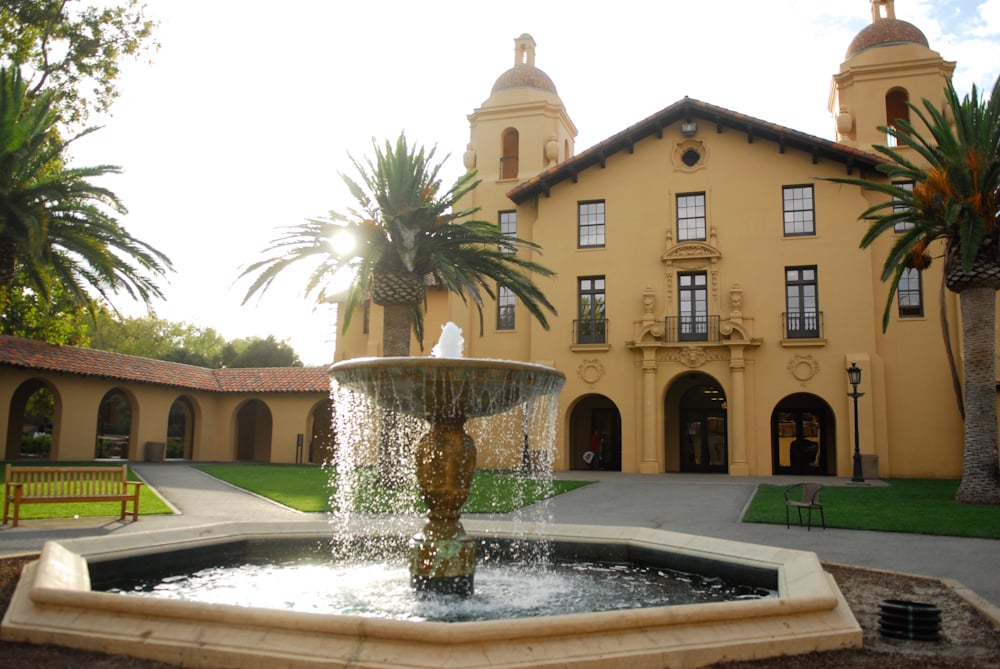The Associated Students of Stanford University (ASSU) completed a two-year-long initiative to reinvest its $22 million portfolio to align with the values of the student body last month. The reinvestment, which was executed in partnership with Stanford Student Enterprises (SSE), marks a shift to an investment strategy with a greater emphasis on environmental, social and governance (ESG) factors.
This shift comes amid calls from student groups like Fossil Free Stanford for the University to divest its approximately $27 billion endowment from the fossil fuel industry. Earlier this year, the Board of Trustees decided not to divest fully from the industry, retaining about 1.5% of its holdings. Richa Gupta ’21, an SSE investment analyst who attended a Board of Trustees meeting this year, said that while she hopes the ASSU and SSE can lead the way, she is “not particularly optimistic” that the University will completely divest in the near future.
When asked whether the University would re-consider a full divestment from the fossil fuel industry, a spokesperson redirected The Daily to an announcement that the University has reduced investment in fossil fuels since 2014.
The idea to reinvest the portfolio, which is partially used to fund student groups, was introduced in 2018 in response to what the organizations saw as “shifting trends within the student body,” according to SSE CEO Kevin Martinez ’17. Last year, the organizations held focus group sessions to assess the student body’s values and to discuss potential ethical investing strategies for the ASSU’s $1.2 million Cardinal Fund, a component of the larger ASSU/SSE portfolio.
The data from the sessions indicated that students wanted the ASSU to “divest from fossil fuels and military weapons/civilian firearms,” according to Chair of the SSE Board of Directors Jonathan Lipman ’21.
This year, the two groups decided to apply these insights to their entire portfolio following discussions with the SSE advisory board and advisors from Vanguard, a major investment firm.
“Working in a nonprofit setting, especially an educational institution, you want to make sure that if you ever have any assets that are being invested, that they are done so with respect to the values of its community,” Martinez said. “We also are trying to make sure that our investments keep up with trends in the economy, so we thought that this was just a natural evolution.”
ESG investing is a form of socially responsible investment that analyzes companies based on criteria of sustainability and societal impact. The portfolio is invested primarily in two Vanguard exchange-traded funds that screen companies based on a set of ethical guidelines. The funds place an increased emphasis on human rights, environmental, anti-corruption and diversity criteria.
The Vanguard funds exclude the fossil fuel industry, as well as “vice companies,” in industries such as adult entertainment, alcohol, tobacco and gambling. Gupta said that ESG companies are well positioned for the evolving market environment and the approaching Biden administration.
“I am optimistic when it comes to the performance of these issues, especially when it comes to renewable energy,” Gupta said. “I think that there is growing awareness about different social movements, especially Black Lives Matter and the increased focus on diversity. So we hope that companies that try to promote diversity from inside will do better.”
SSE is also working to revive an investing class last offered in 2018 that would allow students to become analysts for the ASSU/SSE portfolio. Students would make decisions for the Cardinal Fund and develop long-term plans for continually adjusting the portfolio to ensure that ethical criteria stay up to date. Currently, the groups are struggling to find University support for the course amid budget cuts at the departmental level. If the group is unable to bring back the course, the Cardinal Fund may be invested in the Vanguard funds. According to Martinez, the ASSU and SSE will continue to push for an ESG investing course in the coming years.
“I think it’s important as an educational opportunity to learn more about ESG investing, as an opportunity for the student body to learn more about the SSE investment process, and as a way for the SSE to more effectively invest its portfolio,” Lipman said.
Contact Tammer Bagdasarian at tbag ‘at’ stanford.edu.
